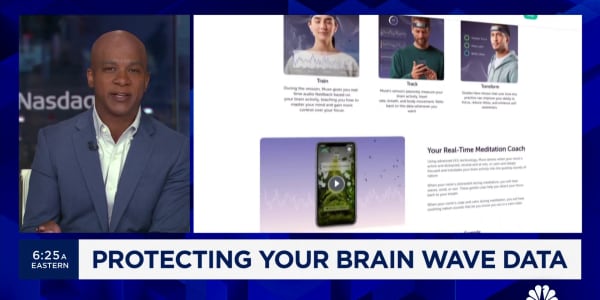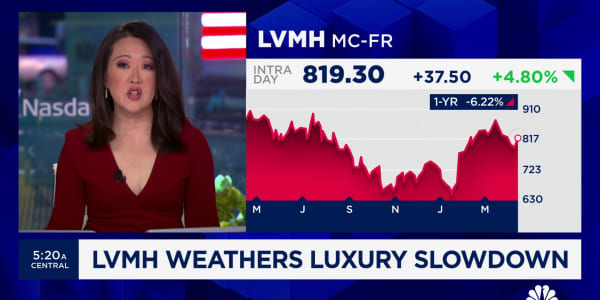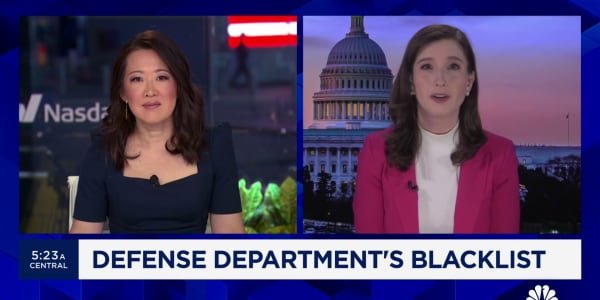Recapping the day's news and newsmakers through the lens of CNBC.
Notes:
Ever heard of the "pre-announcement ratio?" You're about to, because it's flashing yellow for the stock market.
For every 10 companies warning of lower-than-expected profits for the fourth quarter, less than one says it will beat forecasts. The 10.4-to-one ratio is significantly worse than the previous record of 6.8 in the first quarter of 2001. The long-term average is 2.3 negative warnings for every positive.
While this sounds horrible, Wall Streeters have several reasons for telling themselves it's not as bad as it seems: forecasts have already been cut, CEOs are being hyper-cautious these days, profits will probably grow, and so on.
Quotes:
"This is off the charts, I've never seen it this high."—Gregory Harrison, analyst at Thomson Reuters
"Corporate leaders are very unsure about the outlook. Setting low expectations is the best way to avoid a [profit] disappointment later."—Alan Skrainka, chief investment officer at Cornerstone Wealth Management
Lululemon's a downward dog
Notes:
Speaking of warnings, Lululemon Athletica—which can't seem to get any pose right lately—today warned of flat same-store sales, sending the shares on a double-digit plunge. The warning came as the Canadian maker of yoga clothing beat expectations for third-quarter earnings.
The company has had a variety of stumbles, such as selling see-through pants, supply-chain snags and, just this week, having to demote a chairman who said dissatisfied customers had fat thighs.
Quote:
"The guidance—it's clearly a source of concern. Flat comps suggest there's been a change in consumer demand for the product."—Credit Suisse analyst Christian Buss
Glass half-?
Notes:
If there's a bottom line for the U.S. economy, it's that you just can't count on anything. That uncertainty is underscored by two economic reports today, a good one on retail sales, a not so good one on unemployment claims.
Retail sales rose 0.7 percent in November, the biggest gain in five months, beating forecasts a tad. But unemployment claims jumped by 68,000 to 368,000, reversing three months of declines. It was the largest weekly increase of the past year, and the Labor Department said there were no special factors to explain it. Economists had expected 320,000.
Quote:
"Rumors of a massive slowdown in the fourth quarter could be ... exaggerated."—CNBC's Steve Liesman, cheering the retail report
Home inequity
Notes:
Mixed in from the mortgage market. The rate of new foreclosures is plunging, but delinquencies on certain second mortgages are rising.
New filings have fallen to a low not seen in more than six years. Among the many reasons are an improving jobs picture and rising home prices that allow once-underwater homeowners to sell for more than they owe.
But things are getting worse, not better, with many borrowers who took out home equity lines of credit early in the past decade. There has been an 11 percent increase this year in the number of loans becoming seriously delinquent after reaching the amortization period.
Why the discrepancy? Because the wisest course is to pay the loan off before getting to the amortization period. Borrowers that reach this stage may be more financially stressed as a group than those who are still making just interest payments.
Quote:
"Regionally and locally, there are going to be some jumps in foreclosure numbers in 2014, but nothing we anticipate will threaten the housing recovery."—Daren Blomquist, vice president at RealtyTrac
—By Jeff Brown, Special to CNBC.com




